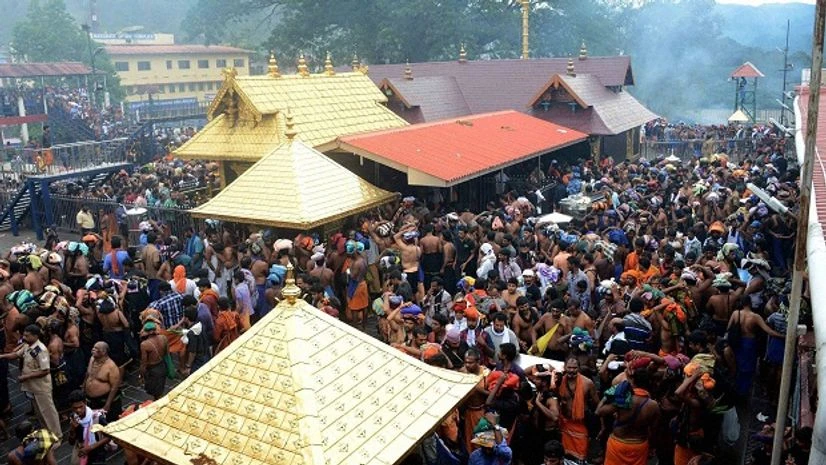The Kerala government has told the Supreme Court that banning entry of women of menstrual age in historic Sabarimala temple in the state, is a "matter of religion" and it is duty bound to "protect the right to practice the religion of these devotees".
In an affidavit, the state government said administration of the temple vests with the Travancore Devaswom Board under the Travancore-Cochin Hindu Religious Institutions Act and the decision of the priests is final in the matter of worship.
"In the context of Sabarimala, the administration vests with the Travancore Devaswom Board under the provisions of the Travancore-Cochin Hindu Religious Institutions Act, 1950.
More From This Section
A bench of Justices Dipak Misra and N V Ramana would take up the matter on February 8.
The Congress-led UDF government, while withdrawing the affidavit filed earlier in the apex court by the previous LDF government in November 2007 supporting entry of women into this temple, said, "the restriction on women between the age of 10 and 50 has been prevailing in Sabarimala from time immemorial. This is in keeping with the unique 'pratishta sangalp' or idol concept of the temple."
"The same is an essential and integral part of the right of practice of religion of a devotee and comes under the protective guarantee of the Constitution under Articles 25 and 26 which have been held to contain guarantee for rituals, observances, ceremonies and modes of worship which are an integral part of religion," it said.
Urging the court to dismiss the PIL filed by Indian Young Lawyers' Association, the affidavit said, "the present petition which seeks to change the beliefs and customs of crores of devotees by judicial process is wholly misplaced and liable to be dismissed".
It added that the state government is "duty bound to protect the right to practice the religion of these devotees".
The government also said "the right to exclude persons who are not allowed to participate in worship according to the tenets of the religious institution in question is a matter of religion" and such essential or integral parts of religion are "immune" from challenge under Article 14 (right to equality).
"Since the deity is in the form of Naisthik Brahmachari, it is believed that young women should not offer worship in the temple so that even the slightest deviation from celibacy and austerity observed by the deity is not caused in the presence of such women," the affidavit said.
The previous government had supported entry of women in the hilltop shrine saying, "it is not fair to deny a section of women from entering Sabarimala temple". It had also favoured appointment of a commission of scholars to facilitate the change.
The present government, however, said the previous stand favouring a change had no legal basis and that it wanted to rectify the "mistakes" by withdrawing the stand taken in 2007.
The affidavit was filed on a PIL by the association seeking entry for all women and girls in the Sabarimala temple which, as a practice, does not allow girls after attaining puberty to enter the premises. However, women, who have crossed menopause, are allowed.
On January 11, the bench had questioned the tradition of banning entry of women of menstrual age group in the temple, saying it cannot be done under the Constitution.
The bench had also asked why women cannot be allowed inside and whether the government was sure that women have not entered the temple premises in the last 1,500 years.
It had observed that it was a public temple and everyone needed to have "the right to access".

)
